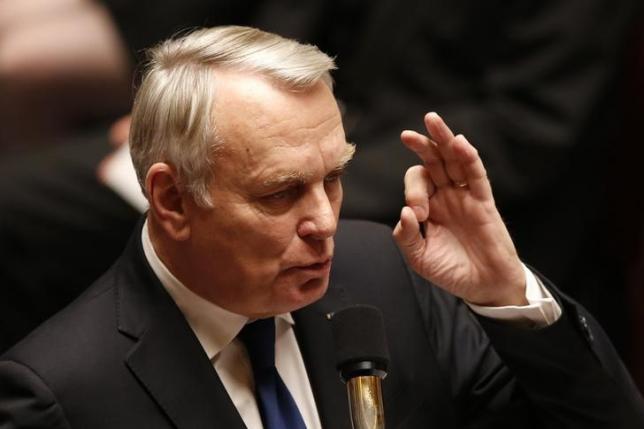-
Tips for becoming a good boxer - November 6, 2020
-
7 expert tips for making your hens night a memorable one - November 6, 2020
-
5 reasons to host your Christmas party on a cruise boat - November 6, 2020
-
What to do when you’re charged with a crime - November 6, 2020
-
Should you get one or multiple dogs? Here’s all you need to know - November 3, 2020
-
A Guide: How to Build Your Very Own Magic Mirror - February 14, 2019
-
Our Top Inspirational Baseball Stars - November 24, 2018
-
Five Tech Tools That Will Help You Turn Your Blog into a Business - November 24, 2018
-
How to Indulge on Vacation without Expanding Your Waist - November 9, 2018
-
5 Strategies for Businesses to Appeal to Today’s Increasingly Mobile-Crazed Customers - November 9, 2018
Turkey pushes allies for Syria ground operation
Russian Federation formally denied it hit a Doctors Without Borders (MSF) hospital in northern Syria, an area where rebels are ceding ground to both government forces and the Kurdish YPG militia, capitalising on Moscow’s airstrikes.
Advertisement
The offensive, supported by Iranian-backed Shia militias and Russian air strikes, has brought the Syrian army to within 25km of Turkey’s frontier.
Saudi Arabia, another fierce critic of Mr. Assad, has said it is ready to send special forces to Syria to take part in ground operations against the Islamic State (IS) group. But the request shows how swiftly a Russianbacked advance in recent weeks has transformed a war that has drawn in regional and global powers.
Major powers agreed last week to a limited cessation of hostilities in Syria, in a deal that takes effect at the end of this week but was not signed by any warring parties – the Damascus government and numerous rebel factions fighting it.
United Nations human rights spokesman Rupert Colville said the strike “may amount to a war crime”.
The Syrian army has also been advancing in northern Aleppo, amid reports of an undeclared coordination between the SDF and the army in the push against radical groups in northern Aleppo.
The YPG, a group composed of Syrian Kurdish militias, seeks to form an autonomous Kurdish enclave in northern Syria, near Turkey’s southern border.
When asked if all council members expressed concern about Turkey’s actions, he said the members “expressed their concern about that situation, about the bombing of humanitarian facilities, about the many issues, very complicated issues, but we don’t have any product at the moment, we are waiting, still discussing this issue [sic]”.
“There is not going to be a unilateral military operation from Turkey to Syria”, the official said, but added: “Without a ground operation it is impossible to stop the fighting in Syria”.
The rebels now hold only the town of Azaz, not far from the Turkish border, and to the south Marea, which is currently nearly encircled by Kurdish forces to the west and Islamic State fighters to the east.
Turkey has been attacking Kurdish forces in northern Syria this week in an attempt to prevent them from taking the town.
Turkish Prime Minister Ahmet Davutoglu made similar comments last week in a meeting with German Chancellor Angela Merkel.
“Our relations [with Turkey] are in a deep crisis”.
The president repeatedly voiced his fury with Washington over its view of Syria’s Democratic Union Party (PYD) and its armed wing, the People’s Protection Units (YPG), which Ankara classifies as offshoots of the outlawed Kurdistan Workers’ Party (PKK) and labels as terrorist.
Advertisement
The Syrian civil war has been steadily getting worse, but it was the lack of a proper response from the global community that finally emboldened Russian Federation, late past year, to enter the conflict.





























